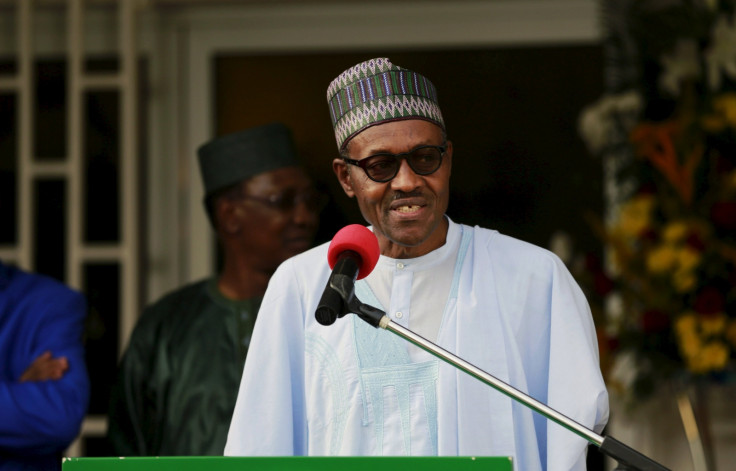Nigeria: Muhammadu Buhari orders ministers to only use government-approved bank accounts

Nigeria's President Muhammadu Buhari has ordered his ministers to use only bank accounts approved by the government to make payments. The move came as Buhari, who took office in May after defeating former leader Goodluck Jonathan, started a major anti-corruption investigation after he alleged billions of dollars had been stolen during previous administrations.The investigation also aims to identify banks and countries where the alleged stolen funds have been lodged.
The new leader said all receipts owed to the government or its agencies must be paid into accounts maintained by the Central Bank of Nigeria (CBN), which recently banned foreign cash deposits in a bid to strengthen the naira. "President Muhammadu Buhari has ordered each and every federal government ministry, department or agency to start paying into a Treasury Single Account (TSA) for all government revenues, incomes and other receipts," Laolu Akande, a spokesman for vice-president Yemi Osinbajo, was quoted by Reuters as saying.
Nigeria
Capital: Abuja
Population: 174,507,53 (2013 census)
Largest cities: Lagos, Kano, Abuja
Major ethnic groups: 21% Yoruba, 21% Hausa,
18% Igbo
Languages: English, Hausa, Igbo, Yoruba
Religion: 50% Muslim, 40% Christian, 10% other
Currency: Naira (N) 1N = £0.0033; US$0.0050
"This measure is specifically to promote transparency," he added, specifying the TSA would be linked to other government bank accounts. Buhari's decision aims to eliminate fragmented accounts that led "the loss or leakages of legitimate income meant for the federation account", Akande continued.
As part of his anti-corruption campaign, Buhari replaced the whole board of the state-run Nigerian National Petroleum Corporation (NNPC's) and banned 113 vessels from lifting crude oil from some 27 Nigerian ports amid suspicions the vessels had been implicated in illicit activities. The leader warned some 250,000 barrels of Nigerian crude oil are stolen every day.
Buhari was also urged to end oil subsidy, which, according to some, contributes to further deepen the country's ongoing economic crisis. Nigeria's lack of refineries means the country – which is Africa's biggest oil producer – has to export about 90% of its crude oil and import back petroleum products at international prices. The government then sells fuel to Nigerians at subsidised prices and reimburses the difference to importers.
Buhari was urged to privatise the country's oil refineries too, so the state would not spend money on yearly maintenance programmes. In July, three out of the four refineries in Nigeria resumed production after undergoing a rehabilitation programme.
Nigeria up close: Check out our Flipboard magazine
© Copyright IBTimes 2025. All rights reserved.






















